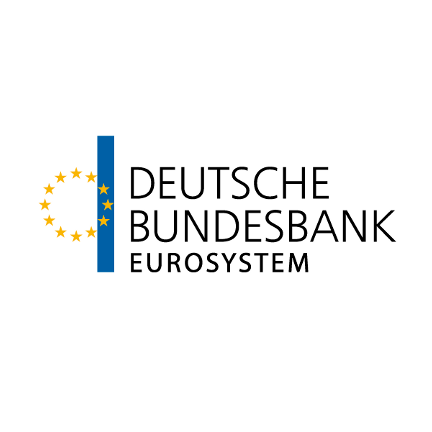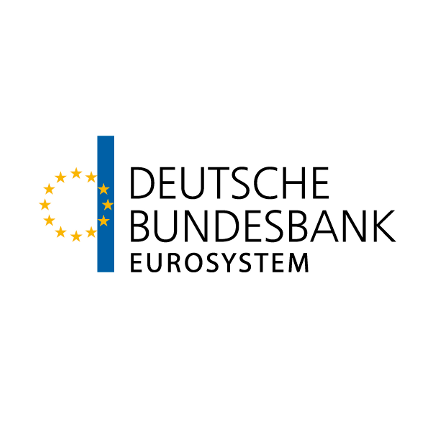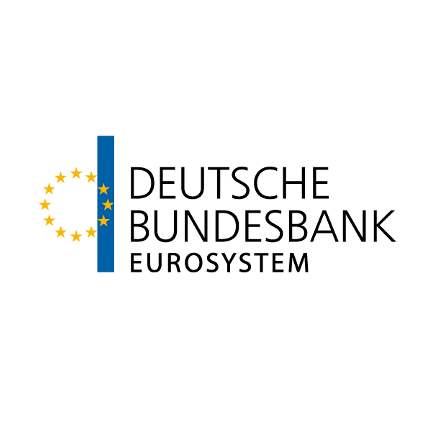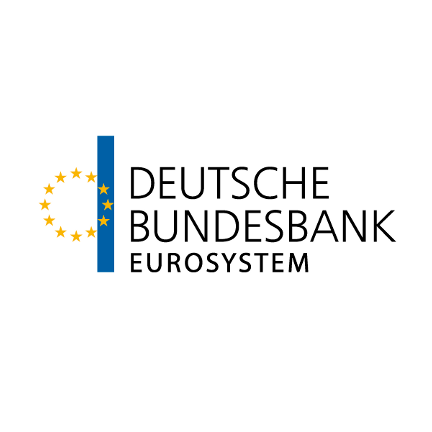
Check the delivery.
Introduction
Ladies and gentlemen.
I don’t know what your morning routine looks like, but mine has changed significantly. Every morning when I wake up, the first thing I do is check the news for developments that I did not expect a few months ago. Global uncertainty and tectonic shifts are everywhere.
Today, I want to take a closer look at what this means for Europe. Specifically: How can Europe position itself in the current circumstances where many international investors are looking for new investment opportunities?
Global Threats: Slow Growth and High Debt
Let me summarize some of the challenges facing our world.
First, the global economy has been experiencing relatively weak growth for a prolonged period of time. The reasons for this are several:
– Growing commercial barriers,
– Overcapacity in China, and
– Concentration risks along the supply chain.
All these factors are becoming a more pressing issue. Commercial barriers such as export rates and restrictions, fragment international markets, and reduce the efficiency of global trade. Overcapacity in China in key industries can lead to additional price pressures, especially in Europe. Concentration either in critical industries like the ChIP industry or in commodities like rare earths can create economic dependencies.
In addition to significant disruptions arising from geopolitical tensions, we have specific country-specific challenges. These include:
– Demographic changes causing a shortage of skilled workers.
– Small and medium-sized enterprises not fully utilizing their digitalization potential.
– Slow implementation and high levels of bureaucracy.
These factors are particularly important in Europe.
And we also face broader challenges that you are all aware of. A short list: climate change, environmental degradation, and the impact of artificial intelligence (AI) on our economies.
We also need to talk about the increase in global debt. Fiscal deficits and public debt as a percentage of GDP have increased significantly in emerging markets and developing economies (EMDEs) by 2025, as well as in advanced savings, reaching an average level of 110% of GDP. High debt poses a significant risk to financial stability. High debt also limits the government’s room for maneuver.
Uncertainty Causes High Volatility in Financial Markets
At the same time, we are facing significant uncertainty, which is evident in the high volatility in financial markets. Just this year, volatility indicators in many market segments have increased at various times:
– In early March, when the new German government presented its tax plans.
– In April, markets reacted strongly to the announcement of «reciprocal» tariffs by the US administration.
– Most recently, we have seen an increase in yields in many countries, especially at the long end of the yield curve.
Conclusion: In recent months, I have witnessed significant volatility in financial markets. The good news is that despite this high volatility, financial markets have remained fairly resilient. But with all these uncertainties and the increase in debt levels, even in advanced savings, it is clear: we are not out of the woods.
Europe Has Benefited So Far
In particular, Europe has held up relatively well against this uncertainty and volatility. The euro has appreciated against the US dollar and compared to the currencies of other major trading partners. European stock markets have outperformed counterparts in other regions. German government bonds have served as a stability anchor and a safe haven, especially against uncertainties regarding tariffs.
In terms of the distribution of government obligations in Europe, there have been no signs of fragmentation in market periods. We are seeing more and more non-European companies issuing bonds in euros instead of US dollars. Finally, the German government’s financial package was well received. Most of the increase in good yields after news of the cost plans reflects an improved medium-term growth outlook.
Therefore, these are the good news, but let’s be honest: part of the market’s reaction to Europe is based on positive expectations for future results. It seems that to some extent, we are being praised for the reforms we have yet to implement.
Moreover, the power that Germany and Europe have shown more has been more relative in nature. In other words, I have also benefited from greater uncertainty in other parts of the world.
However, it is also true that many investors are discovering Europe as a safe haven. It is a place where democracy, the rule of law, and the principle of checks and balances are present.
How Can Europe Benefit in the Future?
How can Germany and Europe preserve and build on these positive developments in this context? Or, in other words, how can we ensure that the current tailwind does not turn into a warm farewell?
First, we must ensure that democracy, the rule of law, and the principle of checks and balances remain the backbone of Europe.
Second, every fiscal space must be intelligently utilized to promote growth. This means that financial resources must be channeled into productive investments.
Third, growth requires not only smart government support. Die größte Anstrengung muss aus dem Unternehmenssektor selbst kommen.
Europäische Unternehmen müssen wettbewerbsfähiger werden, um mit der globalen Dynamik Schritt zu halten. Dies beinhaltet die Registrierung in der Digitalisierung und der künstlichen Intelligenz sowie die Bestimmung der Innovation in Technologien und disruptiven Bereichen.
Unternehmen müssen auf Alarm und agil bleiben. Sie müssen sich an die Geschwindigkeit der wichtigsten Entwicklungen anpassen und offen bleiben für Veränderungen. Dazu müssen sie qualifizierte Personen einstellen.
Um qualifizierte Menschen zu erhalten, muss Europa ein gutes Bildungssystem anbieten, einschließlich guter Universitäten. Wir müssen sicherstellen, dass jeder Zugang zu Bildungseinrichtungen hat.
Dies führt mich zu meinem letzten Punkt: Wir brauchen ein soziales System, um den sozialen Zusammenhalt zu gewährleisten. Gleichzeitig muss ein soziales System ausgewogen sein, um Stimulanzien für die Arbeit zu liefern und Steuerkapazitäten zu vermeiden.
Ich könnte weiterhin alle Bereiche auflisten, in denen sich Europa verbessern muss. Aber lass mich enden. Globale Bedrohungen und Herausforderungen für Europa
Europa steht vor einer Zeit der Unsicherheit und des Wandels, die von globalen Bedrohungen und Herausforderungen geprägt ist. Die Weltwirtschaft leidet unter langfristigem schwachem Wachstum und einer Vielzahl von kommerziellen Hindernissen. Diese Hindernisse, wie Exportbeschränkungen und Überkapazitäten in China, beeinträchtigen den globalen Handel und die Effizienz der Märkte.
Zusätzlich zu diesen wirtschaftlichen Problemen sieht sich Europa spezifischen Herausforderungen gegenüber, darunter demografische Veränderungen, ungenutzte Digitalisierungspotenziale von KMU und langsame bürokratische Prozesse. Diese Faktoren wirken sich negativ auf die Wettbewerbsfähigkeit und das Wachstum Europas aus.
Ein weiteres drängendes Problem ist die steigende globale Verschuldung, die die finanzielle Stabilität gefährdet und die Handlungsfähigkeit der Regierungen einschränkt. Sowohl in Schwellen- als auch in fortgeschrittenen Volkswirtschaften steigen die öffentlichen Schulden im Verhältnis zum BIP, was eine ernsthafte Herausforderung für die wirtschaftliche Entwicklung darstellt.
Angesichts dieser Herausforderungen muss Europa Maßnahmen ergreifen, um seine Wettbewerbsfähigkeit zu stärken und auf die aktuellen globalen Entwicklungen zu reagieren. Dies erfordert eine intelligente Nutzung der finanziellen Ressourcen, eine Förderung des Wachstums durch produktive Investitionen und eine verstärkte Anstrengung des Unternehmenssektors.
Europäische Unternehmen müssen agil und innovativ sein, um mit den globalen Entwicklungen Schritt zu halten. Dies erfordert Investitionen in digitale Technologien, künstliche Intelligenz und disruptive Innovationen. Darüber hinaus ist die Bildung von qualifizierten Arbeitskräften entscheidend, um die Wettbewerbsfähigkeit Europas zu erhalten.
Europa muss auch sicherstellen, dass Demokratie, Rechtsstaatlichkeit und das Prinzip der Überprüfung die Grundpfeiler seiner Gesellschaft bleiben. Ein ausgewogenes soziales System, das den sozialen Zusammenhalt gewährleistet, ist ebenfalls von entscheidender Bedeutung.
Insgesamt muss Europa seine Anstrengungen beschleunigen, um seine Volkswirtschaften wettbewerbsfähig zu halten und Investoren anzuziehen. Die Stärken Europas, wie Demokratie, Rechtsstaatlichkeit und Innovationskraft, sind entscheidend für die Zukunft des Kontinents als sichere Zuflucht und attraktives Investitionsziel.
Europa steht vor großen Herausforderungen, aber mit klugen Maßnahmen und einem klaren Fokus auf Wettbewerbsfähigkeit und Innovation kann der Kontinent seine Position in der globalen Wirtschaft stärken und langfristigen Erfolg sicherstellen. Uncertainty causes high volatility in financial markets. This year alone, volatility indicators in many market segments have increased at various times due to significant uncertainty. For example, at the beginning of March, when the new German government presented its tax plans, markets reacted strongly. In April, markets responded sharply to the announcement of reciprocal tariffs by the US administration. Recently, there has been an increase in yields in many countries, especially at the long end of the yield curve.
This uncertainty reflects a heightened awareness of fiscal sustainability in several countries, including the US. The increase in interest rates can be seen as a normalization as central banks slowly withdraw from bond markets. However, it may also indicate concerns about fiscal sustainability. This underscores the fact that fiscal space is not unlimited, as indicated by the bond markets.
In such an environment, market participants must deal with significant changes. One notable development is the growth of US Treasury yields, which typically correlate with a stronger US dollar. However, this correlation has recently been reversed. Additionally, potential vulnerabilities from non-bank financial institutions, such as large margin calls affecting speculative funds, highlight the need to closely monitor these entities, which control about 50% of global financial assets.
In conclusion, financial markets have experienced significant volatility in recent months, yet they have remained fairly resilient. However, with uncertainties and rising debt levels, it is evident that challenges lie ahead. Europe has fared relatively well amid this uncertainty and volatility, with the Euro appreciating against the US dollar and European stock markets outperforming their counterparts in other regions.
To ensure continued positive developments in Europe, it is essential to uphold democracy, the rule of law, and checks and balances. Additionally, smart fiscal policies that promote growth, support from the private sector, and a focus on innovation and agility in businesses are crucial. A strong education system and a balanced social system that fosters social cohesion are also vital for Europe’s future success. Europe must accelerate its efforts to maintain competitiveness and attract investors while safeguarding its core values. Could you please rewrite this text for me? Please rewrite this sentence.
QUELLEN



